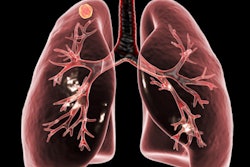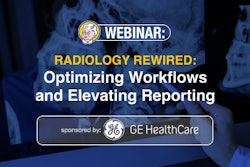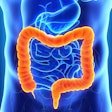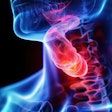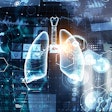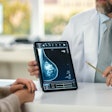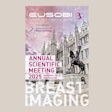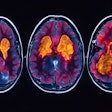
The World Health Organization (WHO) has updated its recommendations for tuberculosis (TB) screening to now include the use of computer-aided detection (CAD) applications in chest radiography, according to officials who discussed the update during a presentation on 23 March organized by the International Society of Radiology.
The new recommendation comes at a time when screening programs around the world are falling short of goals set for early detection and treatment of TB by the United Nations in 2018. Globally, 7.1 million people were diagnosed and treated for TB in 2019 out of an estimated 10 million cases. About 29% of all people with TB were not diagnosed or reported to WHO, according to Cecily Miller, PhD, an epidemiologist and biostatistician with the WHO's global TB program.
She noted that the COVID-19 pandemic has made matters much worse. In 2019, approximately 1.4 million fewer people worldwide received care for TB than in 2020.
TB screening with the assistance of CAD applications should be done systematically in a selected population to distinguish people with a higher probability of TB and should be followed with a diagnostic evaluation using a test with high accuracy to confirm a diagnosis, Miller said.
"This is a very significant addition to our recommendations for screening. This comes after many years of discussions at WHO and finally having the appropriate data to evaluate the performance of CAD," Miller said.
To aid in implementing CAD applications in TB screening efforts, the WHO has made a suite of digital tools available to help countries plan, implement, and monitor TB screening programs:
- The PreventTB App: This tool can be used on a phone or a tablet. It allows data collection and automatic analysis.
- ScreenTB: This web-based tool can assist countries with program planning calculations to get a sense of which CAD algorithms are best for screening specific populations and to help prioritize groups based on risk.
- CAD for TB detection: This web-based tool can assist countries with implementation and calibration of CAD. Since the performance of CAD applications can vary across different settings, even when the same threshold for detection is used, this tool helps calibrate them to ensure users are getting the diagnostic accuracy, yield, and cost implications they anticipated.
The WHO also updated other recommendations. For instance, systematic screening for TB is now strongly recommended among the following groups:
- Household members and close contacts of TB patients
- People living with HIV
- Miners exposed to silica dust
- Prisoners
TB screening is strongly recommended for medical inpatients with HIV because they may live in high-burden settings, such as medical wards with a prevalence of TB above 10%. TB screening is now conditionally recommended for all other people living with HIV.
Additionally, systematic screening for TB is conditionally recommended among the following populations:
- People with clinical risk factors for TB seeking healthcare in settings with TB prevalence of 0.1% or higher; risk factors include malnourishment, diabetes, a history of previous TB, or chronic lung disease
- Populations with limited access to healthcare, such as urban poor, refugees, migrants, homeless, or other marginalized groups
- Among the general population in settings with a TB prevalence above 0.05%
"This is an update to the previous recommendations which stated that screening in the general population should only be done in populations with a 1% prevalence or higher," Miller said.
The International Society of Radiology organized the presentation in collaboration with the WHO to mark World TB Day on 24 March. The theme of World TB Day this year is "The Clock is Ticking," and it is meant to remind global leaders that efforts to end TB must be kept up, in spite of challenges introduced by the novel coronavirus disease.






